Filter by
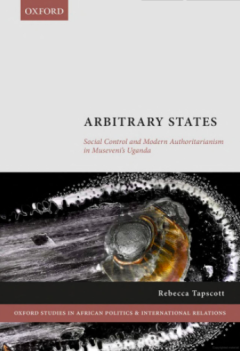
Arbitrary states : social control and modern authoritarianism in Museveni's U…
This book places literature on the post-colonial African state in conversation with literature on modern authoritarianism, using this to frame over ten months of qualitative field research on Uganda's informal security actors - including vigilante groups, local militias, and community police. Based on this research, the book presents an original framework - called 'institutionalized arbitrarine…
- Edition
- 1
- ISBN/ISSN
- 9780198856474
- Collation
- 230p
- Series Title
- -
- Call Number
- 306.2089935 TAP a
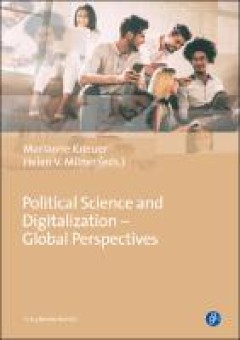
Political science and digitalization : global perspectives
Digitalization is not only a new research subject for political science, but a transformative force for the discipline in terms of teaching and learning as well as research methods and publishing. This volume provides the first account of the influence of digitalization on the discipline of political science including contributions from 20 different countries. It presents a regional stocktaking…
- Edition
- -
- ISBN/ISSN
- 9783847414889
- Collation
- 292 p.
- Series Title
- -
- Call Number
- 320.072 KNE p

Climate crisis economics
Climate Crisis Economics draws on economics, political economy, scientific literature, and data to gauge the extent to which our various communities – political, economic, business – are making the essential leap to a new narrative and policy approach that will accelerate us towards the necessary transition to a decarbonized economy and sustainable future. The book draws out policies and pr…
- Edition
- -
- ISBN/ISSN
- 9781003037088
- Collation
- xvi, 304 p. : ill.
- Series Title
- -
- Call Number
- 363.73874561 MAC c
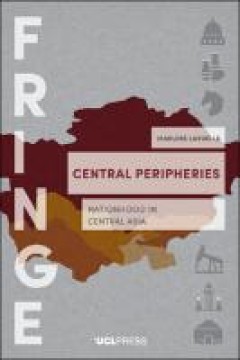
Central peripheries : nationhood in central asia
Central Peripheries explores post-Soviet Central Asia through the prism of nation-building. Although relative latecomers on the international scene, the Central Asian states see themselves as globalized, and yet in spite of – or perhaps precisely because of – this, they hold a very classical vision of the nation-state, rejecting the abolition of boundaries and the theory of the ‘death of …
- Edition
- -
- ISBN/ISSN
- 9781800080133
- Collation
- ix. :264 p.
- Series Title
- -
- Call Number
- 327.58. MAR c

Houses built on sand : violence, sectarianism and revolution in the Middle East
The events of the Arab Uprisings posed an existential challenge to sovereign power across the Middle East. Whilst popular movements resulted in the toppling of authoritarian rule in Tunisia, Egypt and Yemen, other regimes were able to withstand these pressures. This book questions why some regimes fell whilst others were able to survive. Drawing on the work of political theorists such as Agambe…
- Edition
- -
- ISBN/ISSN
- 9781526126474
- Collation
- x, 266 p. : ill.
- Series Title
- -
- Call Number
- 303.48330956 MAB h

Competition in world politics : knowledge, strategies and institutions
The »return of great power competition« between (among others) the US, China, Russia and the EU is a major topic in contemporary public debate. But why do we think of world politics in terms of »competition«? Which information and which rules enable states and other actors in world politics to »compete« with one another? Which competitive strategies do they pursue in the complex environme…
- Edition
- -
- ISBN/ISSN
- 9783839457474
- Collation
- 306 p.
- Series Title
- -
- Call Number
- 300 RUS c
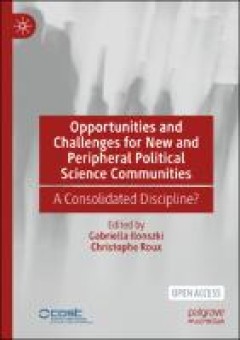
Opportunities and challenges for new and peripheral political science communi…
This open access book offers an updated examination of the institutionalisation of political science in sixteen latecomer or peripheral countries in Europe. Its main theme is how political science as a science of democracy is influenced and how it responds to the challenges of the new millennium. The chapters, built upon a common theoretical framework of institutionalisation, are evidence-based…
- Edition
- -
- ISBN/ISSN
- 9783030790547
- Collation
- xiv, 288 p. ; ill
- Series Title
- -
- Call Number
- 320 ILO o

Deals and development : the political dynamics of growth episodes
"International financial crises have plagued the world in recent decades, including the Latin American debt crisis of the 1980s, the East Asian crisis of the late twentieth century, and the global financial crisis of 2007-09. One of the basic problems faced during these crises is the lack of adequate preventive mechanisms, as well as insufficient instruments to finance countries in crisis and t…
- Edition
- -
- ISBN/ISSN
- 9780198801641
- Collation
- xxv, 335 p. : bnw, ill.
- Series Title
- -
- Call Number
- 338.90091724 WER d

Engaged fatherhood for men, families and gender equality : healthcare, social…
This aim of this open access book is to launch an international, cross-disciplinary conversation on fatherhood engagement. By integrating perspective from three sectors—Health, Social Policy, and Work in Organizations—the book offers a novel perspective on the benefits of engaged fatherhood for men, for families, and for gender equality. The chapters are crafted to engaged broad audiences, …
- Edition
- -
- ISBN/ISSN
- 9783030756451
- Collation
- x, 325 p. : ill
- Series Title
- Contributions to Management Science
- Call Number
- 306.8742 GRA e
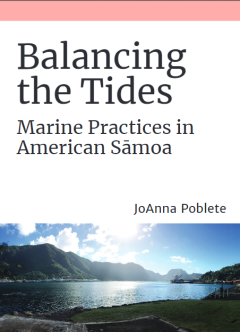
Balancing the tides : marine practices in American Sāmoa
"Balancing the Tides highlights the influence of marine practices and policies in the unincorporated territory of American Samoa on the local indigenous group, the American fishing industry, international seafood consumption, U.S. environmental programs, as well as global ecological and native concerns. Poblete explains how U.S. federal fishing programs in the post–World War II period encoura…
- Edition
- -
- ISBN/ISSN
- 9780824879686
- Collation
- 256p. ; ill.
- Series Title
- -
- Call Number
- 338.3727099613 JOA b
 Computer Science, Information & General Works
Computer Science, Information & General Works  Philosophy & Psychology
Philosophy & Psychology  Religion
Religion  Social Sciences
Social Sciences  Language
Language  Pure Science
Pure Science  Applied Sciences
Applied Sciences  Art & Recreation
Art & Recreation  Literature
Literature  History & Geography
History & Geography